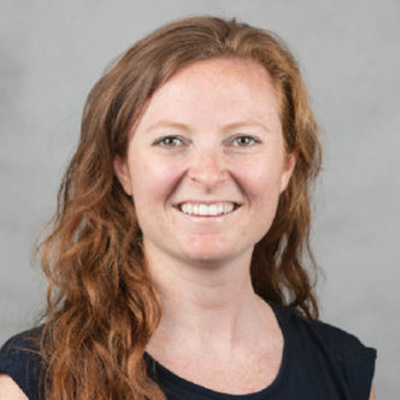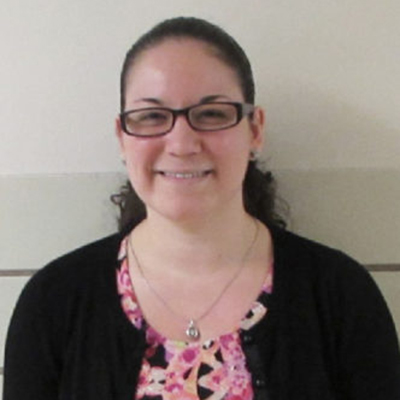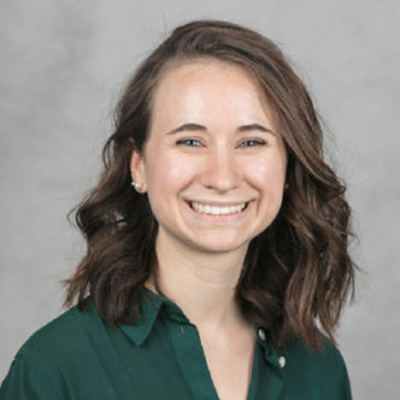Past Projects
Emily Keating

A Staff Evaluation of a Pilot Transitions Curriculum for Young Adults with Autism
Occupational, social, and community engagement for young adults with autism are common challenges that reflect a lack of consistent and supportive community resources (Carter & Lunsford, 2005; Mankey, 2011; Tomchek & Koenig, 2016). Urban Autism Solutions (UAS), an emerging organization nestled within Chicago’s Little Italy neighborhood, is attempting to bridge this gap through residential, vocational, and social opportunities for individuals with autism aged 18-35. Collaborating with University of Illinois Department of Occupational Therapy, UAS hosts the New Approaches to Break Down Barriers (BDB) initiative in which young adults with autism from urban high schools identify meaningful independent living goals. The Independent Living & Learning program engages students in various groups to meet their goals. Inspired by the evidenced based Self-Determination Learning Model of Instruction, this pilot project includes initiatives to support student choice toward goal-directed activities (Wehmeyer et al., 2011). This project evaluates a pilot independent living curriculum for young adults with autism, facilitated by an interdisciplinary staff. Evaluation and focus group findings have been used to improve future curricula, maximizing students’ success in transitioning to adulthood through facilitating opportunities for self-determination.
Download Emily's Presentation
Briana Rigau

Co-creating a writing group to build organizational capacity for scholarly practice in early intervention
There is a gap between the high-quality and evidence-based practices that EI practitioners should be delivering and the care that is actually provided (Bruder, 2010), necessitating quality improvement (QI) to fill this gap. While engagement in health services research (HSR) projects that leverage quality electronic data capture can help to fill this gap, EI practitioners need support to meaningfully engage in this type of research as part of their employment. This OTD project addresses the need for EI programs to implement a QI initiative to improve practitioner capacity for HSR engagement to sustain the Scholarship of Practice (Hammel et al., 2015) in an EI organizational context. The purpose of this project was to co-design a three-part professional development opportunity to strengthen EI practitioner capacity for HSR engagement at a large, urban, and non-university affiliated EI program in Colorado. Main findings have provided initial insights into the feasibility, acceptability, and level of practitioner engagement with the current offering, as well as ways to optimize it prior to further implementation at RMHS.
Download Briana's Presentation
Andrea LeFlore

Partnering with Supportive Housing Organizations and People Transitioning out of Homelessness through Community Assessment
Housing First interventions reflect current evidence-based practice for ending homelessness. Yet people with lived experience of homelessness cite a desire for deeper community living, engagement, and participation than what current interventions provide. This gap warrants the potential for an occupational perspective gained through participatory action research to consider community and population-level interventions that address these complex needs. For this OTD project, Andrea LeFlore partnered with the ReVive Center for Housing and Healing, a service provider of permanent supportive and affordable housing options for homeless individuals. The project utilized a strengths-based Participatory Community Assessment framework – adapted for accessibility and utility in supportive housing settings – to further explore housing and community-related goals. This framework empowered community members as equal participants in the assessment and action planning process, and informed translation of findings into organizational-level changes. This project demonstrates the use of Participatory Community Assessment and action research to build capacity of community organizations for strengths-based services, design asset-based programming in partnership with community members, and contribute to research that is grounded in lived experience and community priorities.
Download Andrea's Presentation
Amy Early

The Unique Role of Occupational Therapy in Memory Cafés for People with Dementia: Strategies for Occupational Therapy Practitioners
The number of older adults with Alzheimer’s disease and related dementias (ADRD) is rapidly increasing as the population ages (Alzheimer’s Association, 2018; Prince et al., 2016). Strong evidence indicates services at the community level may be the most effective means of providing services to the greatest scope and diversity of individuals with ADRD (Cooper, Tandy, Balamurali, & Livingston, 2010). One such service – the memory café – provides a safe and stigma-free community place for persons with ADRD and their caregivers to come on a regular basis and engage in various leisure and social activities (Takechi, Sugihara, Matsumoto, & Yamada, 2018). Occupational therapy practitioners are well-suited to contribute to these cafés. However, in a review of over ten established memory cafés worldwide, only one mentioned any involvement of an occupational therapy practitioner (Kiddle, Drew, Crabbe, & Wigmore, 2015). This OTD project addresses the need to educate occupational therapy practitioners on the role they can play in memory cafés to increase their involvement in this community service. The purpose of this project was to develop a manual of strategies and a training workshop grounded in the Model of Human Occupation to define and describe memory cafés and to provide occupational therapy students and practitioners with concrete strategies to enhance the engagement of persons with dementia. The manual contains five chapters and two appendices including chapters on occupational therapy-based strategies to address roles, interests, and the environment. The workshop was implemented with 19 current or future clinicians and findings indicate the materials developed were effective in increasing OT practitioners’ understanding of memory cafés, level of interest, and confidence in their ability to make valuable contributions to this community service. Many attendees expressed interest in becoming involved in a local memory café following the workshop and obtaining a copy of the manual. The manual will be disseminated following approval by the committee.